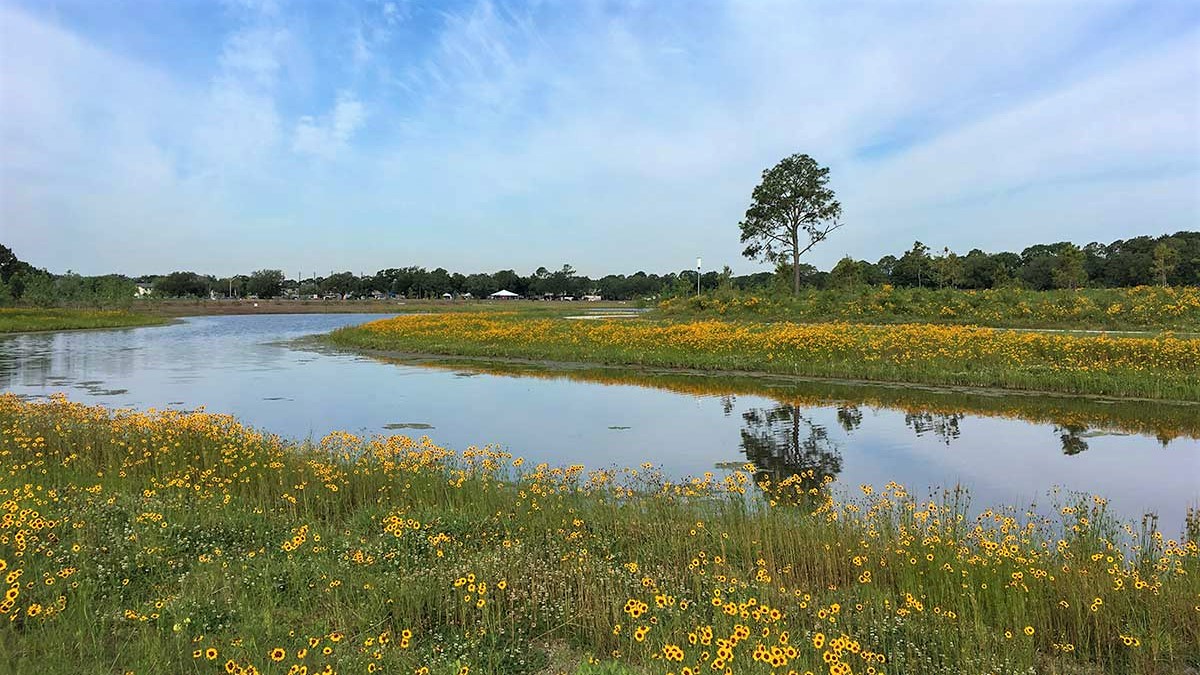
2020 Texas Envirothon

Houston
April 18–20, 2020 [Canceled]
The 2020 Texas Envirothon was canceled because of the COVID-19 pandemic; however, a Virtual Envirothon Challenge was held on social media from April 2 to May 1. Sixty-one participants answered daily questions covering aquatics, forestry, soils, and wildlife.
- Gold Sponsor: Eastman Chemical Co.
- Silver Sponsor: LyondellBasell
- Bronze Sponsors
- Gulf Coast Authority
- Texas Forestry Association Educational Fund
- Supporters
- Association of Texas Soil & Water Conservation Districts
- Harris County Soil & Water Conservation District
- NCF-Envirothon
- Texas Association of Environmental Professionals
- Hosts
- University of St. Thomas
- Houston Arboretum and Nature Center
- University of Houston-Clear Lake
Resources
Students will learn the concepts of how water is managed in Texas. Key topics include:
- Understand the ability of Natural Resources Districts to implement local policy and local management to protect water users;
- Understand administrative structures and processes for managing water uses and supplies;
- Understand ground and surface water hydrology and connectivity;
- Understand the economic, social and environmental impacts of projects and policy decisions.
- Understanding how groundwater and surface water systems function.
- Objective 1. Knowledge of hydrologic cycle
- Objective 2. Knowledge of groundwater and surface water interactions
- Objective 3. How human activities effect groundwater and surface water
- Understanding the importance of water quality and quantity as a foundation in a healthy
ecosystem.
- Objective 1. Understanding the connection between groundwater and surface water and how they affect each other.
- Understanding a variety of water quality indicators in different landscapes.
- Objective 1. Knowledge of water quality impacts such as agriculture practices, urban development, nitrates, toxic algae, etc.
- Objective 2. Understand the indicators of water health, including physical, chemical and biological properties and its role in the hydrological system.
- Understanding a variety of water quantity indicators in different landscapes.
- Objective 1. Knowledge of water quantity impacts such as agriculture practices, urban development, and groundwater levels.
- Objective 2. Understanding of stream gauges and groundwater maps.
- Understanding how sustainable and best management practices enhance and protect water
quality and quantity for humans and wildlife.
- Objective 1. Understand the importance of moving toward sustainable practices to protect water quality and quantity.
- Objective 2. Understand best management practices that improve water quality and quantity such as improved agriculture practices, urban planning and water efficiency.
- Objective 3. Understand the role of technology: flow meters, observation wells, Airborne Electromagnetic (AEM) surveys, Unmanned Aerial Vehicles (UAV) (drones, GIS, etc.), precision agriculture, etc.
- Understanding the differences of local, regional, and national systems that manage
natural resources and the importance of each in water resources.
- Objective1. Knowledge of various conservation agencies, and how partners work together for conservation success.
- Understanding the social, economic, political impacts of natural resources management
and decision making.
- Objective 1. Describe the social, economic and political impacts of regulating water quality and quantity.
- Objective 2. Understand the delicate balance behind decision making—funding projects, social responsibility, regulatory authority.
- Understanding how sustainable and best management practices enhance and protect water quality and quantity for humans and wildlife.
- Understanding the differences of local, regional, and national systems that manage
natural resources and the importance of each in water resources.
- Local: Clean Rivers Program
- Regional/State: Texas Water Development Board and
TCEQ Water Quality: Rivers, Lakes, and Estuaries - National: EPA National Aquatic Resource Surveys
| Topic | Presenter |
|---|---|
| Current Issue |
Water Resources Management (PPTX) |
| Current Issue |
Exploration Green (PPTX) |
| Forestry |
Forestry (PPT) |
| Soils |
Soils (PPTX)
|
| Wildlife |
Creating Bird-Friendly Habitats (PPTX) |






